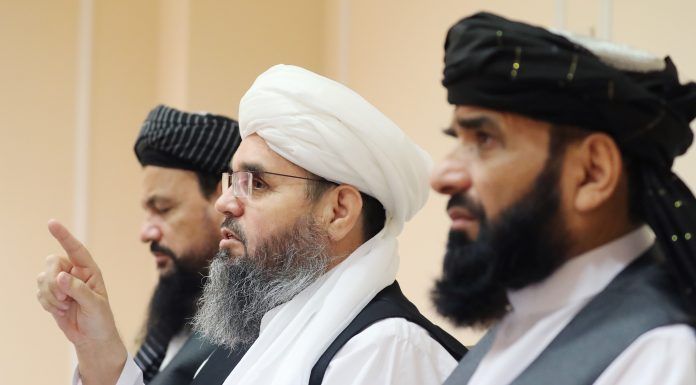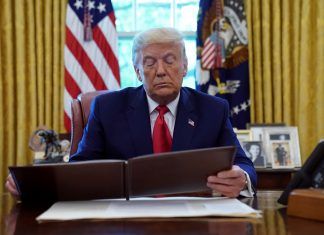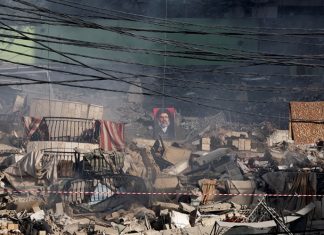KABUL/ MOSCOW, July 9 (Reuters) – Taliban officials said on Friday the Sunni Muslim insurgent group had taken control of 85% of territory in Afghanistan, and its fighters were tightening their grip on strategic areas.
Government officials dismissed the assertion by a Taliban delegation visiting Moscow as part of a propaganda campaign launched as foreign forces, including the United States, withdraw after almost 20 years of fighting.
But local Afghan officials said Taliban fighters, emboldened by the withdrawal, had captured an important district in Herat province, home to tens of thousands of minority Shi’ite Hazaras.
Torghundi, a northern town on the border with Turkmenistan, had also been captured by the Taliban overnight, Afghan and Taliban officials said. Taliban insurgents were now in complete control of the police headquarters, intelligence services, customs operations and the municipal centre, they said.
ANALYSIS: Afghanistan Will Be the New Base of Operation for Iran and IRGC
Hundreds of Afghan security personnel and refugees continued to flee across the border into neighbouring Iran and Tajikistan, causing concern in Moscow and other foreign capitals that radical Islamists could infiltrate Central Asia.
Three visiting Taliban officials sought to address those concerns during their visit to Moscow.
“We will take all measures so that Islamic State will not operate on Afghan territory… and our territory will never be used against our neighbours,” one of the Taliban officials, Shahabuddin Delawar, told a news conference.
He said “you and the entire world community have probably recently learned that 85% of the territory of Afghanistan has come under the control” of the Taliban.
The same delegation said a day earlier that the group would not attack the Tajik-Afghan border, the fate of which is in focus in Russia and Central Asia.
‘LION OF HERAT’ APPEALS TO CIVILIANS
A prominent anti-Taliban commander of a private militia rejected the assurances made in Moscow, and said he would support efforts by Afghan forces to claw back control of parts of western Afghanistan, including a border crossing with Iran.
Mohammad Ismail Khan, a former minister and a survivor of a Taliban attack in 2009, was a leading member of the Northern Alliance whose militia helped U.S. forces topple the Taliban in 2001.
A veteran Tajik commander widely known as the Lion of Herat, Ismail Khan urged civilians to join the fight to protect their basic human rights.
He said hundreds of armed civilians from Ghor, Badghis, Nimroz, Farah, Helmand and Kandahar provinces had come to his house and were ready to fill the security void created by foreign force withdrawal.
U.S. President Joe Biden on Thursday defended his decision to pull military forces out of Afghanistan despite large parts of country being overrun by the insurgent group.
He said the Afghan people must decide their own future and that he would not consign another generation of Americans to the two-decade-old war.
Biden set a target date of Aug. 31 for the final withdrawal of U.S. forces, minus about 650 troops to provide security for the U.S. embassy in Kabul.
A long-time sceptic of the U.S. and NATO military presence in Afghanistan, Biden said the United States had long ago achieved its original rationale for invading the country in 2001: to root out al-Qaeda militants and prevent another attack on the United States like the one launched on Sept. 11, 2001.
The mastermind of that attack, Osama bin Laden, was killed by a U.S. military team in neighbouring Pakistan in 2011.
(Reporting by Kabul & Moscow bureau, Editing by Timothy Heritage)






